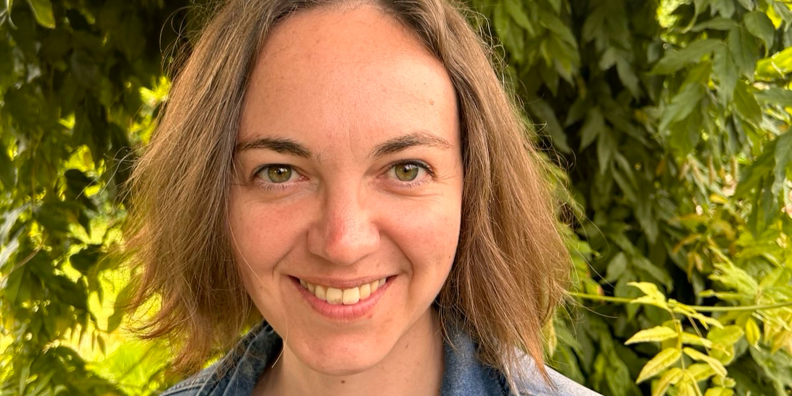
- This event has passed.
Promotie Carola Dahmen: ‘And it was not good anymore”

On September 30 at 3:30 PM, Carola Dahmen will defend her dissertation at the PThU: ‘And It Was Not Good Anymore. The Ecofeminist Theologies of Sallie McFague and Catherine Keller and the Dialectical Theology of K. H. Miskotte. A Systematic-Theological Research.’
Supervisors
Supervisors: Prof. Dr. Heleen Zorgdrager, Prof. Dr. Rinse Reeling Brouwer
Practical information
Date: Monday September 30, 2024
Location: Jacobikerk, St. Jacobsstraat 171, Utrecht
Start: 3:30 PM
The defense will take place in Dutch and partly in English
About the research
The dissertation brings together two different theological movements, namely ecofeminist and dialectical theology. In the context of climate change, biodiversity loss and other ecological threats, the author asks how to think systematically-theologically about the relationship between God and “nature” (more-than-human nature) when the continued existence of life on earth is threatened.
Ecofeminist theology has made many different contributions to answer this question. Emerging from feminist theology, it is a movement that embraces intersectionality and works from postcolonial thinking. Sallie McFague is an important voice in the ecofeminist debate and has made a major contribution with her theological-metaphorical model of the world as God’s body (The Body of God, 1993). This is a panentheistic proposal that stimulates the imagination and aims to encourage us to treat God’s body (animals, plants, vulnerable people, our earth) more carefully. Catherine Keller, 20 years younger, bases herself on McFague’s bodily theology, but with her radical ‘theopoetics’, the process thinking of Alfred North Whitehead, postmodern, postcolonial and queer theology she brings forward a clearly new voice. In her creation theology ‘The Face of the Deep’ she unfolds, on the basis of Genesis 1:2, a creation from the depths that goes against a creation from nothing, as expressed by Karl Barth for example. She argues that a theology that demonizes depth, chaos and darkness often shows patriarchal and heteronormative traits and is not useful for an ecological and gender-sensitive theology. A reading according to the method of the Amsterdam School, as for example Karel Deurloo does, ultimately does not meet the requirements of Keller’s perspective on a creation from the depths, in which God also lets himself be created and seduces the elements into a collaboration for more beauty and justice.
The ecofeminist theology that upgrades ‘nature’ or brings it closer to God encounters objections in the Dutch context. This tension has been expressed by Kune Biezeveld. With her proposal to think of God in everyday life, she went against the contrasting thinking of Miskotte’s dialectical theology. The author critically examines Miskotte through the eyes of Kune Biezeveld. While Miskotte could also have acted as an ally of feminist theology, according to the author he falls short in his stereotypical writing about women and his uncritical rooting in Western theology.
The study of Miskotte himself also reveals that ‘nature’ does not automatically mean paganism for Miskotte. Through an extensive analysis of his diaries, the author makes it clear that Miskotte’s love for nature was not just a romantic phase in his life that was ended by the rise of National Socialism, but that his sensuality needed ‘nature’ and that he was a sharp observer of the points at which human interaction with animals goes wrong. His prophetic pamphlet ‘Edda and Thora’, in which the perception of ‘nature’ in the Edda and national socialist thinking is linked to chaos, the eternal cycle, the will to power, the denial of moral boundaries and the euphoric rising and falling in the depths of nature, is not the only thing he has to say theologically about ‘nature’. In his theological-exegetical work on the Biblical book of Ruth ‘The ordinary life’ and other theological work, an appreciative perspective on ‘nature’ emerges. Ultimately, surprisingly for a theologian who wholeheartedly rejects natural theology, Miskotte agrees with Buber and the Chassidism that brings God and ‘nature’ close together, he listens to the ‘singing of nature’ and describes our dear earth as a spoilsport (like God) for evil powers. His passionate statement “the core sees wide” means that looking from God as savior and creator, “nature” as creation and life on earth can also be called good and reconciled.
After the author has analyzed the three theologians, together with Kune Biezeveld, with special attention to their biographical background and has brought them into conversation through a staged dialogue,
